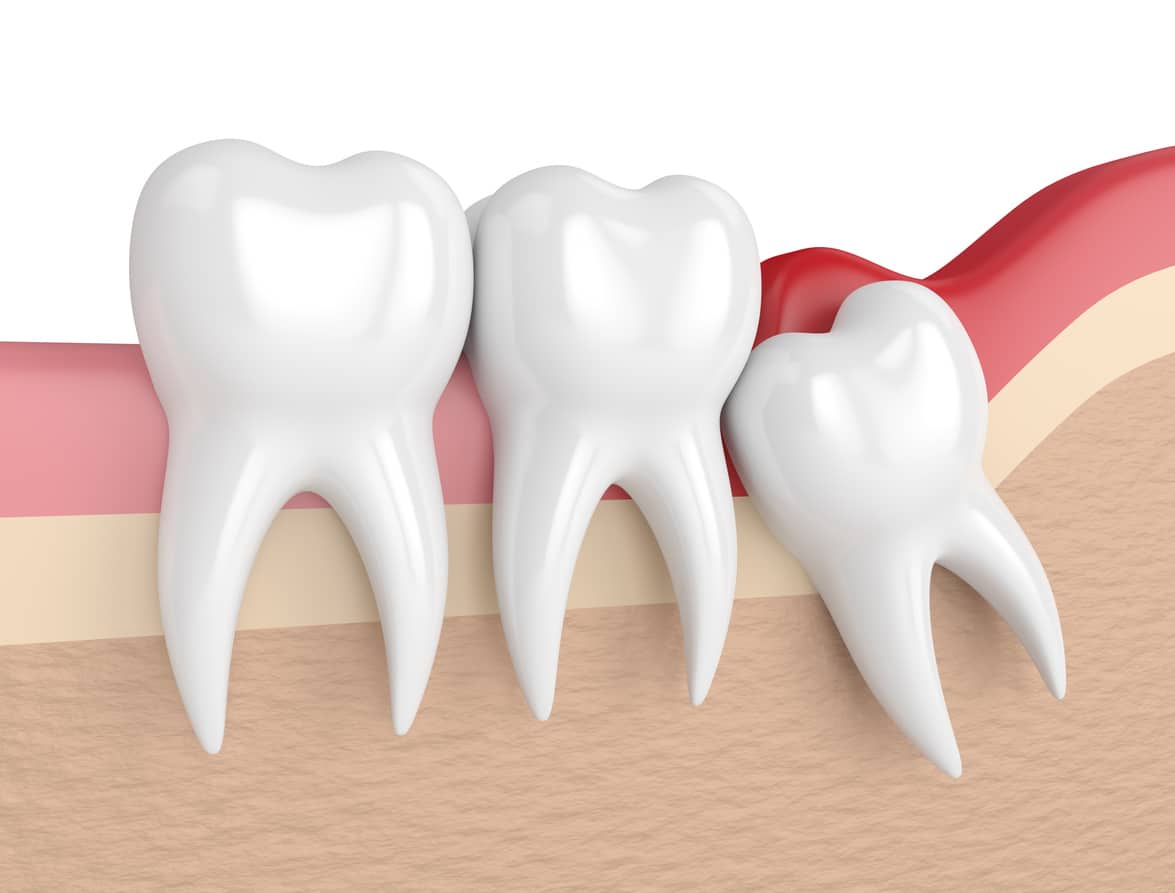Discovering Various Sedation Options for a Comfortable Knowledge Pearly Whites Extraction Experience

Local Anesthesia
Neighborhood anesthesia is a commonly used method for numbing certain locations of the mouth during knowledge teeth extraction treatments. By administering an anesthetic, such as lidocaine, a dental professional can ensure that the individual continues to be comfy and pain-free throughout the extraction process. Regional anesthesia works by momentarily obstructing the nerves in the mouth, stopping them from sending out discomfort signals to the mind. This permits the dental expert to perform the removal without creating any kind of discomfort to the client.
One of the key benefits of neighborhood anesthesia is its targeted numbing effect, which suggests that just the certain area being dealt with is influenced. This localized method reduces the risk of systemic negative effects and permits a quicker healing post-procedure. wisdom teeth removal aspendale. Furthermore, neighborhood anesthetic is thought about to be a safe and regular technique in dental care, with marginal risks entailed when provided by an experienced specialist
Nitrous Oxide

Furthermore, nitrous oxide is understood for its fast recovery time. Once the mask is gotten rid of, the results of the gas wear away rapidly, allowing people to resume their regular activities without sticking around sedative results. This makes nitrous oxide a practical choice for those that need to drive themselves home after the dental consultation. Nitrous oxide is suitable for people of all ages, making it a flexible sedation alternative for knowledge teeth removals and various other oral treatments.
Oral Sedation

One of the key advantages of dental sedation is its convenience of management. Unlike intravenous sedation, oral sedation does not require needles or injections, making it an extra comfortable option for individuals with a fear of needles. Furthermore, oral sedation is considered risk-free and effective when provided by qualified dental professionals. It is vital for clients to adhere to pre-operative instructions offered by their dental professional, such as avoiding from eating or consuming alcohol prior to the procedure to make sure the sedative medication functions as meant.
IV Sedation
Administered intravenously by skilled medical experts, IV sedation is a powerful technique used to cause a controlled state of deep relaxation and unfamiliarity throughout dental treatments. Unlike dental sedation, which can be uncertain in its effects, IV sedation permits precise control over the level of sedation, making it a perfect choice for complicated treatments like knowledge teeth removals.
Throughout IV sedation, a sedative medicine is delivered directly into the blood stream via a capillary, enabling it to work quickly and efficiently. This method makes certain that the patient remains unaware and comfy of the treatment while still maintaining crucial features such as breathing and heart price.
Among the key advantages of IV sedation is its ability to supply a much deeper level of sedation compared to other methods, making it specifically ideal for people with high degrees of anxiousness or those undergoing substantial dental work. Additionally, the results of IV sedation usually wear away progressively after the treatment, decreasing the possibility of grogginess or lingering negative effects. Overall, IV sedation offers a reliable and secure alternative for making sure a comfortable and stress-free experience throughout knowledge teeth removal.
General Anesthesia
Having actually reviewed the advantages of IV sedation for wisdom teeth extraction, the application of general anesthesia gives a different option for patients calling for a deeper level of unfamiliarity during oral procedures. General anesthesia induces a regulated state of unconsciousness, ensuring the person feels no pain or pain during the removal process. This approach is especially valuable for individuals with severe oral stress and anxiety, complicated surgical needs, or those undertaking multiple removals at the same time.
General anesthetic is administered by an experienced anesthesiologist that closely keeps track of the individual's vital signs throughout the procedure. It involves making use of intravenous drugs or inhaled gases to induce a state of unfamiliarity. While under general anesthesia, the person will not be mindful of the surgical treatment, experience any discomfort, or have any recollection of the treatment afterward.
Although general anesthesia is risk-free when administered by certified specialists, it lugs a somewhat greater danger contrasted to other sedation options. wisdom teeth removal aspendale. Individuals thinking about basic anesthetic for wisdom teeth extraction must review the prospective dangers and advantages with their dental professional or oral doctor to make an educated decision based see this on their individual demands and medical history
Conclusion
To conclude, different sedation options are offered to ensure a comfortable wisdom teeth extraction experience. Local anesthetic is commonly used for numbing the particular location, while nitrous oxide offers leisure and pain relief. Oral sedation and IV sedation offer much deeper degrees of leisure, depending upon the individual's demands. General anesthesia can be made use of for much more complicated instances. It is necessary to talk to your dental professional or oral cosmetic surgeon to identify the most appropriate sedation alternative for your procedure.
Nitrous oxide is ideal for people of all ages, making it a flexible sedation choice for wisdom teeth removals and other oral More Bonuses treatments.
Unlike intravenous sedation, oral sedation does not require needles or shots, making it a more comfortable choice for individuals with a worry of needles.One of the key advantages of IV sedation is its capability to provide a deeper degree of sedation compared to various other techniques, making it particularly ideal for clients with high levels of anxiousness or those going through extensive look at here now oral job.Having discussed the advantages of IV sedation for wisdom teeth removal, the use of basic anesthesia gives an alternative option for individuals calling for a deeper degree of unconsciousness throughout oral treatments. Dental sedation and IV sedation offer deeper degrees of relaxation, depending on the patient's demands.